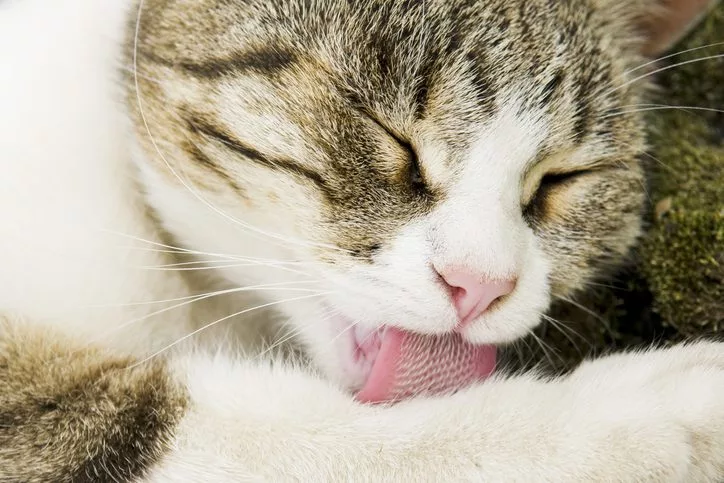Is it Normal for a Cat to Have Hairballs in Santa Clarita, CA?

If you have a cat, there’s a good chance you’ve seen her cough up hairballs now and then. But if this is your first cat, or if it’s been a while since you’ve been around cats, you may wonder whether this is normal—and if not, what you should do about it.
The good news is that cat hairballs are normal, and most of the time, they are nothing to worry about. However, it’s still a good idea to pay attention to the underlying causes of your cat’s hairballs and figure out how you can help her cut down on the number of hairballs she has, too.
Common Causes of Cat Hairballs
In the article below, you’ll find out more about some of the most common causes of hairballs in cats. With this information, you can help reduce hairballs in your feline friend.
Coat Length
Coat length is one of the biggest contributing factors in cats with hairballs. Longhaired cats are naturally going to have more hairballs than other cats simply because they have more hair to groom. When they lick their fur to groom it, they release loose hair that gets easily swallowed and forms into hairballs.
That’s not to say shorthaired cats never have hairballs; they do, but it’s less common. The only cats who do not experience hairballs at all are cats who are completely hairless.
Temperature and Climate
Temperature can sometimes affect a cat’s hairball frequency as well, and the same is true of climate. If you live in a place where it is very hot most of the year, or if you have very hot summers in your region, your cat will likely have more hairballs during the hotter times of the year than at other times.
When it’s hot outside, your cat sheds her hair more frequently than she does when it’s cold. This means she has more of a chance to swallow hair when she’s grooming herself in hot weather than in cold weather. If your cat’s hairballs seem to come seasonally, this is probably why.
Coat and Skin Health
Cats may have a variety of skin conditions that lead to poor coat health and excessive hair loss. One of the most common of these are food allergies. If your cat is allergic to something in the food she eats, she will have itchy, dry skin and will lose her hair easily, leading to more frequent hairballs as a result.
Food allergy isn’t the only potential cause of poor coat or skin health, however. There are several conditions that can cause these symptoms, so it’s important to work with your veterinarian if your cat is having a lot of unexplained hair loss.
Overall Health of the Cat
Cats who lose a lot of hair very quickly or who develop patchy bald spots in their hair may have an underlying health problem contributing to this symptom. These cats may also suffer from more frequent hairballs. This is one of the potential causes of hairballs that can be dangerous, depending on the illness or condition your cat is suffering from.
If your cat’s hair loss is excessive and doesn’t seem to have anything to do with her coat length or the temperature outside, take her to the vet to figure out what’s going on.
Poor Diet
Finally, cats who do not get all the nutrients they need in their diets may experience more hairballs as a result of excessive shedding, too. A cat who isn’t eating a diet intended for cats—or who is eating a very low-quality diet without many healthy ingredients—may be more prone to this type of shedding and subsequent hairball increase than other cats.
You can easily solve this problem by upgrading your cat to a healthier type of food. Choose a food that has real ingredients without too many fillers and be sure to pick a protein that is healthy and safe for your cat too.
Talk with Your Santa Clarita, CA Veterinarian
Most of the potential causes of frequent hairballs in cats can be remedied completely or can at least be improved for your pet. By paying attention to your cat’s needs and focusing on the cause of her hairballs, you can help her get some relief from this problem.
As with any health or wellness issue for your pet, be sure to speak to your vet if you have any more questions or concerns. The vet can give you information about any illnesses or conditions that could be affecting your cat and can help you choose the right food to reduce the risk of food allergy as well.
Although most causes of hairballs are nothing too serious, your vet can let you know if there is any cause for concern and can help you come up with the right treatment or management plan moving forward.
Call (661) 799-0655 or use the online form to talk with your Stevenson Ranch Veterinary Center veterinarian about your cat’s hairballs!
Check Your Pet's Records
Look no further, PetDesk allows you to view your Pet's Health information, appointment reminders, etc.
Let's Go Shopping
Need a refill on vitamins, food, etc for your pet? Check our our online store.
Book an Appointment
Looking for Veterinary Care? Stevenson Ranch is a place that you can your pet can depend on for exceptional care.
